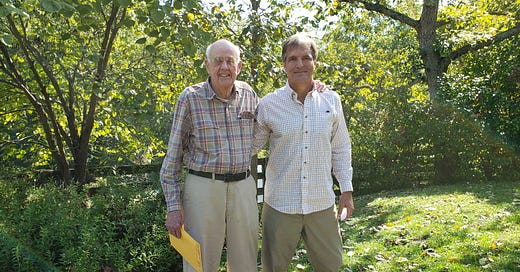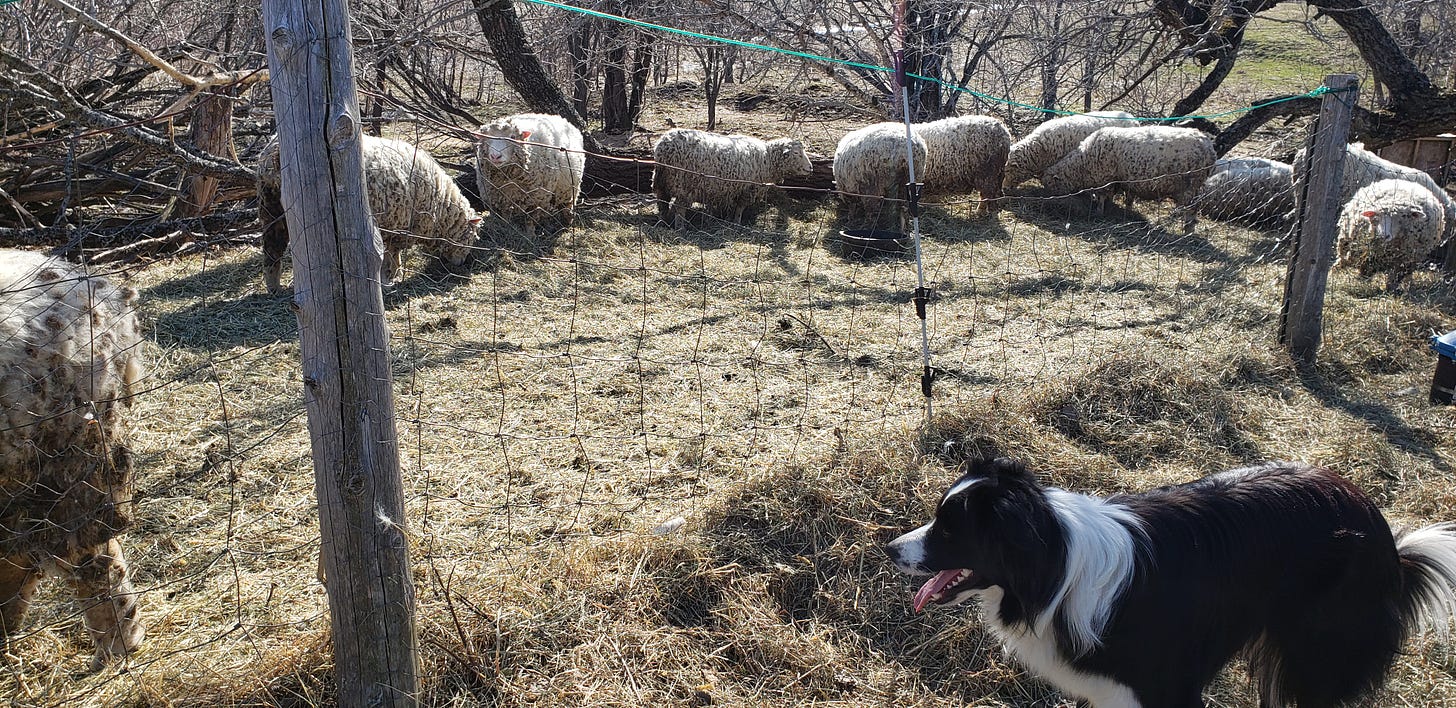The Color of Soil: Of Race and Food
Some thoughts of "Food Sovereignty" and the shared need for healthier foods.
In the social justice melee rewriting American history and culture, few areas are so automatically presumed to be influenced by white supremacism than agriculture. Popular images of southern black sharecroppers are doubtless to blame for this delusion. What though is the evidence of historic or current racism in farming, and why does this matter?
It matters first and foremost because truth matters. And the truth is that modern prejudices have tended to demean and diminish farmers of all skin colors, and that soil (whatever its color) does not discriminate between sowers or harvesters based on skin color, but on merit alone. Cows do not yield their milk or meat differentially based on the color of the hand that husbands them. Pigs do not prefer grain delivered by a white versus a black hand. Customers do not pay a lower price for black- versus white-raised agricultural products.
This subject of race and farming is an interesting lens through which to examine the social justice ideology sweeping America and the world. Truth matters not just because of the slanders leveled, unchallenged, against past generations of white people in derogation of the present one. It matters because this errant distraction dangerously widens the true prejudices of ignorance between rural food producers and urban consumers, harming both. The purveyors of chemical-laden, processed industrial foods seek to peddle them to unsuspecting “consumers” of any color, and Americans who dine regularly on these foodstuffs will be made equally unhealthy.
It matters also because of fraud. Across the country, entities once launched with laudable goals of supporting local agriculture and its traditions have largely been co-opted by (mostly white) social justice “anti-racists” who racialize every facet of farming. These organizations have largely abandoned their missions to improve understanding of soil, food production and distribution, and the importance of preserving local food communities. They are focused on all things of color. Not cow color, or soil color, or potato color, but human skin color. This is base fraud.
This is more than just a mild shift in intent: it is a complete about-face by “farming” organizations into BLM subchapters. It is akin to a non-profit launched to save African orphans suddenly switching focus to saving bees – and hardly a soul questions the wisdom or integrity of the swift transition.
Wendell Berry is a writer and farmer from Kentucky who has warned for half a century about the dangerous rift that has developed between rural and urban Americans. Like Wendell’s family, mine here in Vermont have farmed for many generations. But Wendell’s family suffers from a legacy of slavery and tobacco crops. My family raised sheep and then milked cows, leaving the farm for a time to fight in the Civil War. My paternal grandmother, herself of significant Abenaki Indian descent, was raised on a Vermont dairy farm. There were never any sharecropping laws in Vermont, and white dairy farmers have suffered steady economic decline here to the point of near extinction. This true history is not merely ignored by social justice NGOs: it is fraudulently rewritten.
(With Wendell Berry in Kentucky).
Wendell Berry’s family and mine share different histories re slavery, but a parallel one in farming. As large industrial farms have grown in size and influence, supported by newfangled technological advances that favored short-term production gains over long term ecological, soil, or community health, they have destroyed farms and farm families without skin-prejudice. Whether northern or southern, black or white, rich or poor, or milk or potatoes, Big Ag has mowed down small scale farming with equal disdain. “Get big or get out” was never a whites-only slogan (though whites suffered disproportionately greater economic suffering in Vermont from these policies).
At the same time, the food-dominating expansion of corporate hegemony has inflicted prejudices against urban Americans which have disproportionately impacted people of color. Monsanto (now Bayer) has never intended its glyphosate to target black people over white: that chemical taints human bodies without regard to skin color. However, bipoc urban residents are more likely to soak the stuff up by virtue of demographics. If higher black populations in urban centers are a consequence of historic racism, the solution is for black people to move into the country, not attack the countryside as racist.
The prejudice of food contamination has no eye for skin color, only profits. To ignore the profit-making dangers of American food production, processing and distribution in favor of skin color gives these corporate actors perfect cover to continue toxifying Americans of all colors. It perpetuates a longstanding prejudice of urban people against rural, even as the former suffer greatly for that ignorance.
In an interview, Wendell Berry insightfully explained our modern plight:
Berry called an article’s characterization of the “southernization” of rural Americans — presumably making them sexist, racist, and increasingly uneducated — as “provincial, uninformed, and irresponsible.” Instead of continuing to ignore their plight, Berry suggests, we ought to acknowledge the plundering of these rural regions by their urban neighbors. “Rural America is a colony,” Berry wrote, “and its economy is a colonial economy.”
The bizarre attack on rural cultures and economies by social justice zealots is itself a carpetbagging colonization by the city mice of the countryside. In Vermont, the decades of desperate poverty endured by mostly-white dairy farmers is ignored, and replaced with a history rewrite in which whites allegedly oppressed blacks in agriculture. Institutions created to advance farming have undergone an overnight metamorphosis into ugly, race-focused enterprises, usually with public funding. Shelburne Farms, founded on land donated by abolitionists, now crows that the land was stolen from native tribes, with no evidence. Workshops focus more on racism (and race-obsessed anti-racism) than on how to nurture agriculture.
Consider the incongruous “21-Day Racial Equity Habit-Building Challenge” by “food solutions New England Sustainability Institute.” This April 2023 program melds farming with racism in macabre delusion:
….thousands of individuals and hundreds of officially participating organizations join in a shared journey of learning and charting a course of action to dismantle racism in our food system and our world.
The 21-Day Racial Equity Habit Building Challenge is simple! You commit to deepening your understanding of, and willingness to confront, racism for twenty-one consecutive days in April of each year and the Racial Equity Challenge will:
Raise your awareness, change your understanding and shift the way you behave.
Go beyond individual or interpersonal racism by helping to demystify structural and institutional racism and white supremacist patterns that are sometimes invisible to people.
Inspire you to act, on your own or with others in your organization, business, or group, to dismantle these systems, to make changes in your work and the world that can build true equity and justice for all.
Notably absent from this program is anything to do with farming. Neither is there any evidence of claimed systemic racism, where it exists in food production, or how this unidentified problem is to be addressed. It is not a “shared journey” toward anything but ideological brainwashing, draped in the trappings of agriculture. Perhaps this organization should not employ deceptive statements of purpose. Its mission is not about sustainability, but about anti-whiteness. Very different objectives: deceptive, and racist. If they found a cantaloupe, they’d “paint it black.”
Soon, food inflation will ravage America. The price-hikes and shortages will be completely colorblind: white and black customers alike will pay higher prices. Meanwhile, chemicals in food will continue to decimate the health of white as well as black diners, and efforts by globalists to dominate food production and distribution will harm inner city blacks as much if not more than suburban whites. If race is allowed to divide us, the industrial food system will conquer us. We are all in this food crisis together – blacks and whites.
Wendell Berry is correct:
“The idea that rural and urban America describe two economies, one thriving and the other failing, is preposterous…. We’re joined by one economy. And it’s a one-way economy — the sucking and the digging is out here. The delivery is in the city. They’re prospering because they’re plundering their own country.”
As pseudo-farming non-profits engrossed in social justice instead of agriculture focus on colonial disruption of indigenous Vermont Indian populations in the 17th century, an ongoing colonization is further enabled – by urbanites against rural-dwellers; by industrial behemoths against humans of any color. This freakish, cultish obsession resembles a Uyghur internment camp in China in which the inmates are lectured and indoctrinated about Stalin’s starvation of Ukrainians. The dogma is doggerel, but that’s what’s for dinner.







Thank you very much for this essay John. Please publish it elsewhere (TNR? VDC?) so that many people read it.